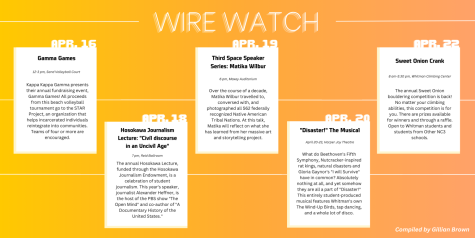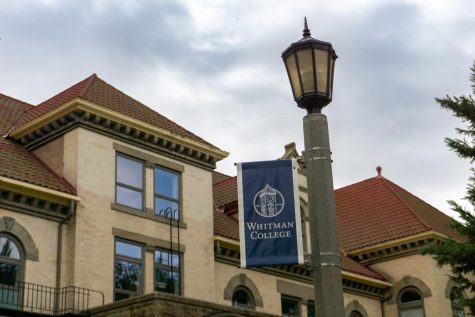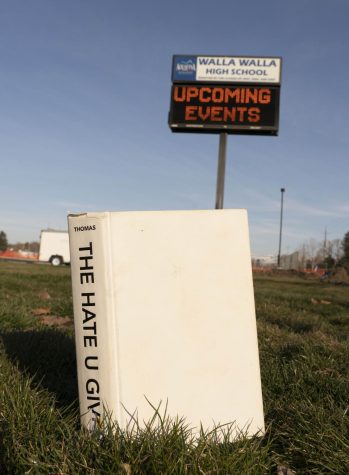Whitman Considers Academic Credit for Inmates in “Rhetoric and Incarceration” class
March 9, 2017
Faculty members and administration involved in Whitman’s Rhetoric, Incarceration and Civic Engagement class are at the beginning stages of granting incarcerated students at the Walla Walla Penitentiary academic credit for the course.
The course focuses on the connections between criminal justice, civic engagement, rhetoric and incarcerated populations. Half of the credit hours are spent at the Penitentiary where incarcerated students can engage with Whitman students and participate equally in assignments and presentations.
Heather Hayes is the Chair and Assistant Professor of Rhetoric Studies and instructor for the course and hopes to have an official proposal by the end of the semester. In October, Hayes met with college registrar, Stacey Giusti and Associate Dean for Student Engagement Noah Leavitt to begin a conversation. They discussed whether or not granting the incarcerated students credit was appropriate, and what administrative details needed to occur to make it possible. All were in agreement that granting the inmates credit was both practical and desirable.
“I think anything we can do on our side to make it apparent to the state that we’re meeting them halfway and trying to increase the options for the inmates is fabulous,” Giusti said. “I’m willing to do whatever from my office’s perspective to make it work.”
Hayes imagines there could be questions in the future about what a Whitman credit means, and if the work the incarcerated students qualifies as that.
“I think it should be the responsibility of the program, and me as the instructor, to speak to the work that all the students in the course do,” Hayes said. “Based on the way the program is set up, both the incarcerated students and the Whitman students do equivalently complicated work.”
While the incarcerated students do not have access to some of the same resources, Hayes has seen how groups of incarcerated students and Whitman students divide up workloads based on that. Incarcerated students will generally do closer readings of the texts while Whitman students focus on outside research.
“We need to ensure that our credits are conversant with the mission statement of the college, and I believe this very much is,” Hayes said. “This is the reason we have a cultural pluralism requirement, the idea that we want to interact in our community, that we want diverse sets of experiences, both interpersonal and intellectual as part of the collegiate experience.”
Meghan Ash, a senior anthropology major who took the course in the fall, found the class to be both challenging and valuable.
“Taking a class at the prison was emotionally challenging and the incarcerated students in my group challenged my ability to empathize, find understanding and communicate,” Ash said. “It was the first class I had where many students and I fundamentally disagreed, and navigating those conversations were extremely hard at the Pen. It was such an incredible class with so many different and valuable perspectives.”
Currently, a program through the Walla Walla Community College allows inmates to receive an associate degree. This program is only available to minimum security inmates. In Hayes’ class this year, some students are medium security inmates who cannot access the associate degree program.
If the college were to grant academic credit to the incarcerated students, they would be treated as a no-charge student. This is similar to high school enrichment students who can currently take a class at Whitman free of charge. Other community members can take classes at the college, but have to pay for the credits because they are taking up seats.
Because Hayes is already teaching the class, and incarcerated students are not physically taking away spots from Whitman students, granting the students credit would not be a financial concern. If the course was only taught on campus, it would have the same number of seats for Whitman students as it currently does. The incarcerated students are added above the classcap in the catalog.
Hayes has repeatedly been told by instructors and staff members at the penitentiary how much it would mean for the incarcerated students to be granted academic credit, and how much it already means for them to be part of a Whitman class.
“It’s a move of inclusion, and a move to break down certain boundaries and barriers, whether they be class, race, socioeconomic background or just the boundary of being incarcerated and not being incarcerated,” Hayes said. “It works to question those boundaries and understand those boundaries in ways I think are important.”









